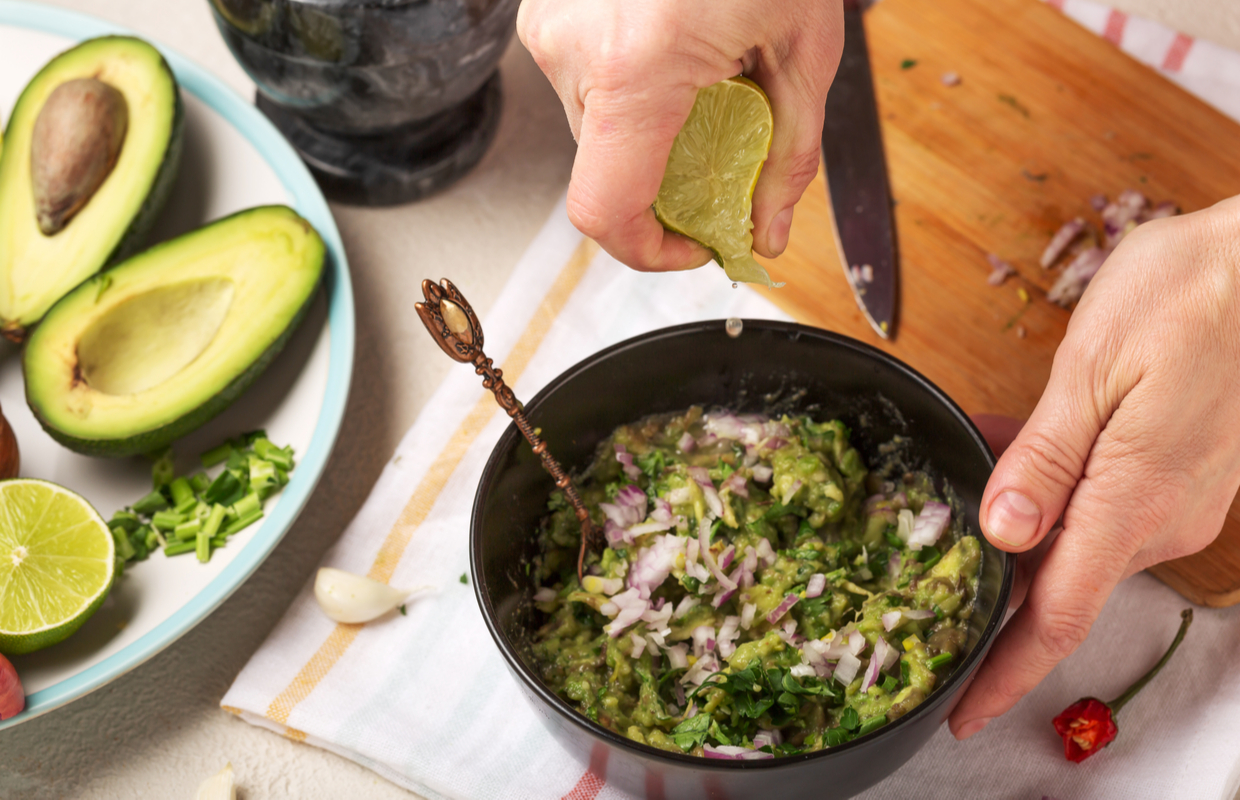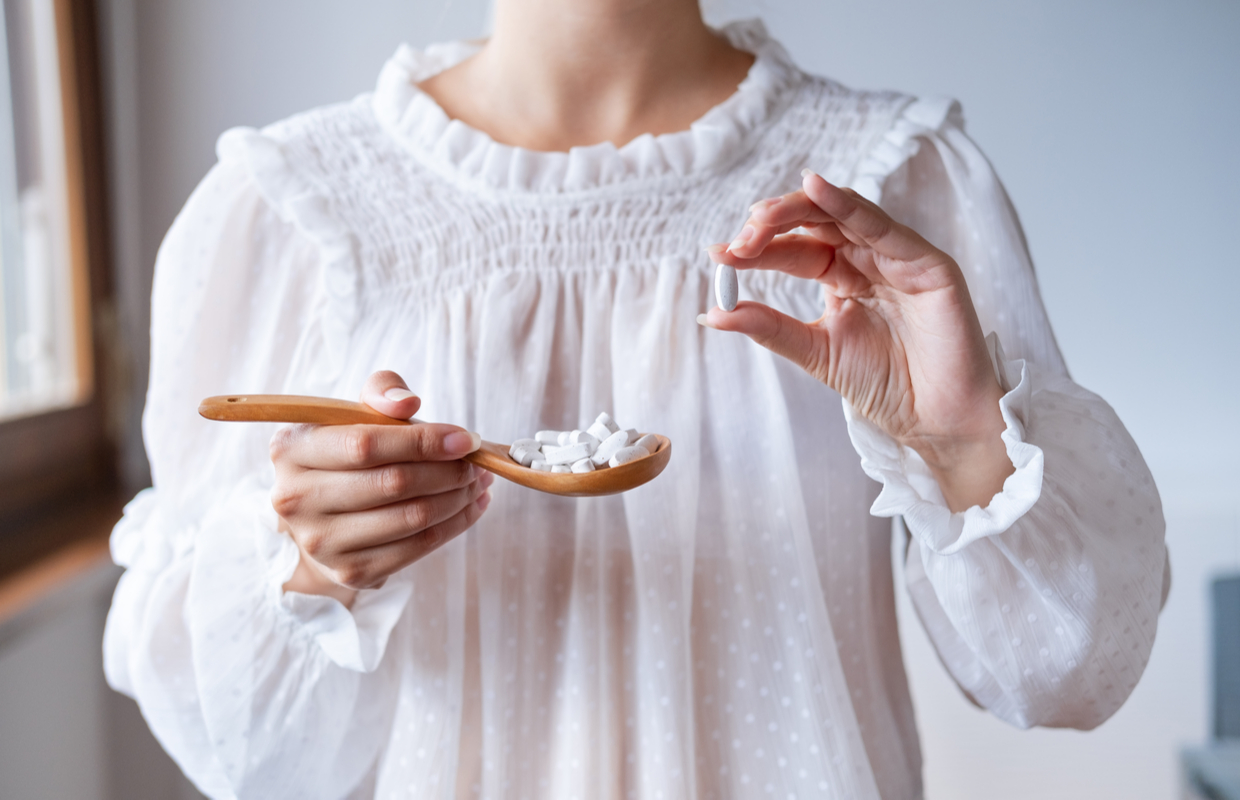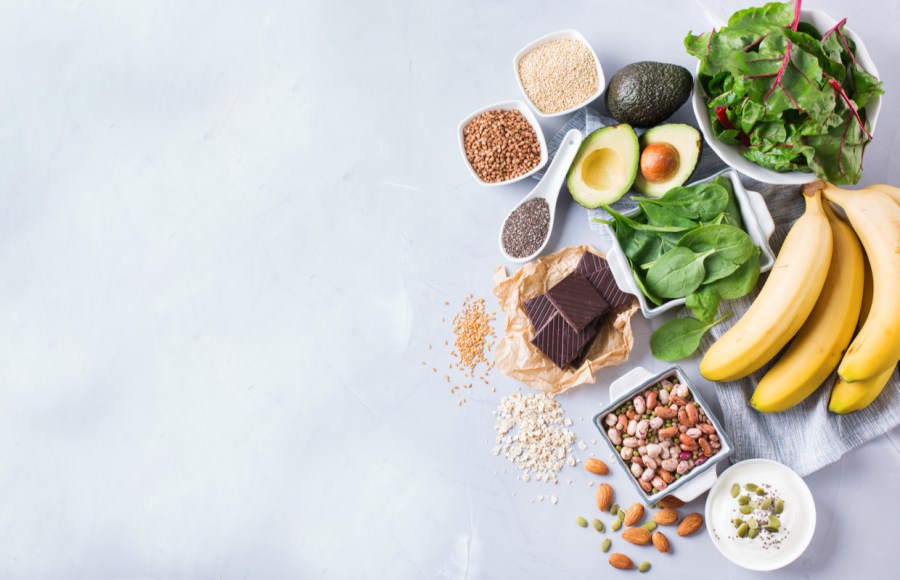Editorial director Katy Sunnassee chats to functional nutritionist Pauline Cox about the importance of magnesium for the functioning of your immune system, before explaining how this miracle mineral could speed up your recovery from post-viral fatigue or long Covid…
Why is magnesium so important in our bodies?
Magnesium is involved in more than 300 mechanisms in the body and it’s important for building hormones, including progesterone. It’s very important for mood, too, as well as skin, energy and blood sugar, as it improves insulin sensitivity, meaning it helps shuttle the glucose out of your blood and into the cells.
Magnesium is very important, but it gets easily depleted if you’re very stressed, have high levels of inflammation, are busy all the time or have a diet that’s lower in green leafy veg – but even if you do eat a lot of leafy veg, our soils are compromised these days and we don’t get as much magnesium in our vegetables as we would 50 years ago.
Also, you don’t tend to absorb magnesium as well the older you get, or if your gut is less acidic, meaning you won’t absorb minerals so well. There are several reasons your magnesium levels might be continuously depleting.
I have a pretty healthy diet, but I still supplement with magnesium to help my nervous system as I’m always on the go. It helps with sleep and calms the fight or flight response, helping me relax. It also helps progesterone – a calming hormone – and boosts energy, too.

Which are the best foods for magnesium?
Magnesium-rich foods include green leafy vegetables such as spinach, kale and watercress. And I know it’s not easy to get those in –sometimes you just don’t want to eat a huge plate full of leaves, especially when you’re ill! But there are smart ways you can pack more greens into your diet.
Take a handful of watercress or some kale, add it into a blender with some avocado, a little bit of nutritional yeast (a great source of B vitamins) and give it a little pulse – don’t pulverise it, just roughly chop it. Add a pinch of pink salt. Now, you have a kind of a guacamole that’s much more manageable to eat then a whole plate of boiled kale or salad leaves.
It’s a really dense source of magnesium now in a very easy to consume form, which is sure to give your immune system a boost. It’s a lot easier to digest, too. This is one way to pack far more green, leafy veg into your diet – and it uses up all those leftover leaves you might otherwise throw away.
Avocados are a great source of magnesium, as is wild-caught salmon, dark chocolate (80 per cent cocoa or higher) as well as nuts and seeds. The best nuts are almonds, which have a natural sweetness. I particularly like walnuts as well because they’re very high in fibre. A handful of almonds and sunflower seeds is great, as these have plenty of vitamin E, which is a potent antioxidant.
You can try grinding up some linseeds, chia, sesame seeds plus sunflower seeds and adding to porridge. Also, have a little mixed jar of seeds on your shelf for sprinkling on salads, or over yoghurt with some berries. I like to rotate the seeds and nuts I use as they all have so many different benefits, and they’re all helping to feed the good gut bacteria, too.

Can magnesium boost your immune system and help with long Covid recovery?
When you’ve been through a stressful time or been really unwell, magnesium is key to reducing inflammation and boosting your immune system. When ill or stressed or just a bit run down, it completely diminishes your levels of magnesium, which can make you feel tired, achy, or anxious, and can cause your muscles to tighten up in your back, neck and shoulders. You can even get migraines and insomnia.
When it comes to food, you have to fuel your body in the right way. Your body’s engine is really made up of the mitochondria in your cells– the tiny energy centres – and you need to give them the right fuel. However, when you’ve been through something like Covid or think you have long Covid, your engine is just not firing as it should be.
This makes the mitochondria become a little sluggish and less efficient at producing the fuel you need. This can leave you feeling tired and lethargic, and lacking in motivation and drive. So, focusing on the fuel you’re giving your body is the first step, then supporting the mitochondria is also really important.
Which magnesium supplement is best for the immune system?
In a high street supplement, you might find magnesium oxide. This form is very poorly absorbed – only about 10 per cent of it in fact. This means you’d have to take tons of it to absorb just a little, so it’s not a very efficient form, plus it can cause some to have gut irritation.
Then you have magnesium citrate, which is a more absorbable form of magnesium. Citrate is good if you are constipated and you need to improve your bowel movements, as it draws water into the small intestine and it helps get everything moving. If you have some gut sensitivity, though, you might find that it can make things ‘too loose’.
If you’re having issues with insomnia or anxiety, the best form is magnesium threonate as it crosses the blood/brain barrier and can directly help with insomnia as well as anything that targets the nervous system.

How much magnesium do we need per day?
The RDA for magnesium is about 460mg a day. I supplement 400mg. When it comes to things like iron and copper and zinc, you can over supplement, but with things like vitamin C and magnesium, you can’t really over supplement. Magnesium is one of those minerals where the body will get rid of what it doesn’t need. So, it’s about finding the sweet spot for you.
If you find that taking two 100mg capsules before bed helps you get the deepest, most restful sleep then that’s great. For me it’s 400mg as I tend to have lots going on in my mind – I’m juggling and spinning lots of plates. This amount gets me in that really deep place.
I found the ladies I work with might be taking 300mg and not noticing anything, but just by adding one more capsule they’ll come back to me a week later and say: ‘Gosh what a difference, it’s transformed my sleep!’ So, it’s about finding what’s right for you.
As I said earlier, blood sugar levels impact how much magnesium you use up and then need, as do stress levels. There are so many variables, but when you find that sweet spot for you, you know it because you feel amazing and sleep so well.







